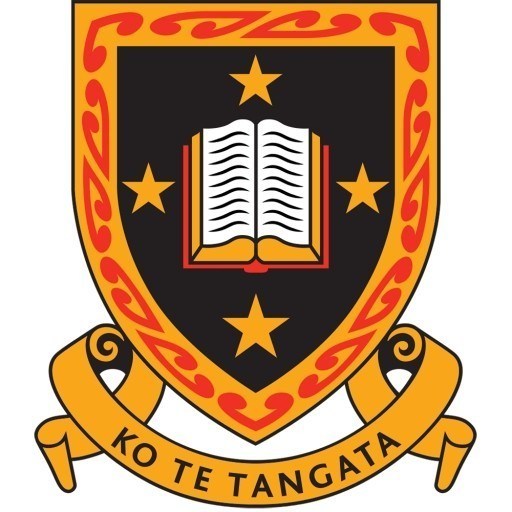Photos of university / #waikatouniversity
The Bachelor of Arts at the University of Waikato offers students a comprehensive and flexible educational experience designed to develop critical thinking, creative expression, and cultural understanding. This undergraduate degree provides a broad foundation in the arts, enabling students to explore a diverse range of disciplines including humanities, social sciences, languages, and visual arts. The programme encourages interdisciplinary learning, allowing students to tailor their studies to align with their personal interests and career aspirations. Throughout the degree, students engage with thought-provoking coursework, participate in practical projects, and explore contemporary issues through analytical and research-based approaches. The curriculum emphasizes the development of strong communication skills, cultural awareness, and ethical reasoning, preparing graduates for diverse career paths in education, media, arts management, community development, and international relations. Students also have opportunities for internships, fieldwork, and collaborative projects that enhance their practical experience and employability. The University of Waikato's vibrant campus community, experienced faculty members, and innovative learning environment support students in achieving academic success and personal growth. With a flexible structure, the Bachelor of Arts degree at Waikato provides a solid foundation for lifelong learning and active citizenship, empowering graduates to make meaningful contributions to society and thrive in a rapidly changing world.
Your first major must be an Arts subject.
Anthropology
Education Studies
English
Ethics
Geography
History
International Languages and Cultures
Linguistics
Mathematics
Music
Philosophy
Political Science
Psychology
Screen and Media Studies
Theatre Studies
Writing Studies
Your second major can be an Arts subject as well, or it could be from another area of the University, provided you meet the entry requirements. If you choose to take a double major (rather than supporting subject), you are able to take up to 120 points outside the Arts subjects, provided you gain a Dean's waiver. All elective papers will then need to be from Arts subjects.
These subjects may only be taken as a supporting subject.
American Studies
Chinese
English as a Second Language
French
German
Japanese
New Zealand Studies - Akoranga Aotearoa
Pacific Studies
Spanish
Studies in Religion
Grades of 3 or higher in each of at least 4 subjects in the Advanced Placement International Diploma (APID).
Applicants whose first language is not English are required to provide satisfactory evidence of English language proficiency, generally in the form of an IELTS ( overall band 6.0 and a Writing band 6.0 and some require 6.0 overall with no less than 6.0 in each band) or TOEFL (79 - 80 with a Writing score of 20) score.
The University of Waikato offers a comprehensive range of financing options for students enrolled in their arts programmes. These options are designed to make higher education accessible and affordable for both domestic and international students. Domestic students may be eligible for government-funded student loans and allowances, which are administered through StudyLink, New Zealand’s official student support system. This includes the Student Loan Scheme, which covers tuition fees and provides living costs support, and the Student Allowance, which is a needs-based benefit for students with financial hardship. Additionally, students can access scholarships offered by the university for academic excellence, leadership, and specific fields within the arts disciplines. These scholarships are awarded annually and can significantly reduce the financial burden of study.
International students attending the University of Waikato are required to fund their studies through personal savings, family support, or external scholarships. The university provides a range of scholarships and financial aid opportunities specifically for international students, such as the International Student Scholarship, which helps offset tuition fees and living costs. Students are also encouraged to seek external funding sources in their home countries, including government scholarships and private bursaries, which can be used in conjunction with university support.
Furthermore, the university offers flexible payment plans to assist students in managing their tuition payments over time. Work-study options are also available, allowing students to combine part-time employment with their studies to generate income. The university’s dedicated Financial Services team provides advice and assistance to help students navigate their financing options and ensure they are aware of all funding opportunities. Overall, the university’s goal is to support students financially throughout their educational journey, ensuring that financing obstacles do not hinder their academic success in arts studies at Waikato.
The Bachelor of Arts (BA) at the University of Waikato offers students a comprehensive education in various disciplines within the arts and humanities. The programme is designed to foster critical thinking, effective communication, and a deep understanding of cultural, social, and artistic concepts. Students have the opportunity to specialise in areas such as languages, literature, history, cultural studies, philosophy, and the arts, among others. The curriculum combines theoretical knowledge with practical skills, preparing graduates for diverse careers in education, media, arts administration, community work, and more. The university emphasizes a flexible learning approach, allowing students to tailor their degree to match their interests and career aspirations, often combining different disciplines to create a multidisciplinary profile. The programme offers both full-time and part-time study options, and students can opt for honours or minors to deepen their expertise in specific fields. The University of Waikato encourages a global perspective, supporting exchange programmes, internships, and community engagement projects to enrich students’ learning experiences. In addition to academic coursework, students are provided with opportunities for personal development through workshops, seminars, and cultural activities. Support structures such as academic advising, career counseling, and access to resources like libraries and online learning tools are readily available to facilitate student success. The degree aims to produce well-rounded graduates who are equipped with critical insight, ethical awareness, and intercultural competence. Upon graduation, students are prepared not only for employment but also for further academic pursuits, contributing meaningfully to society and the arts sector.










